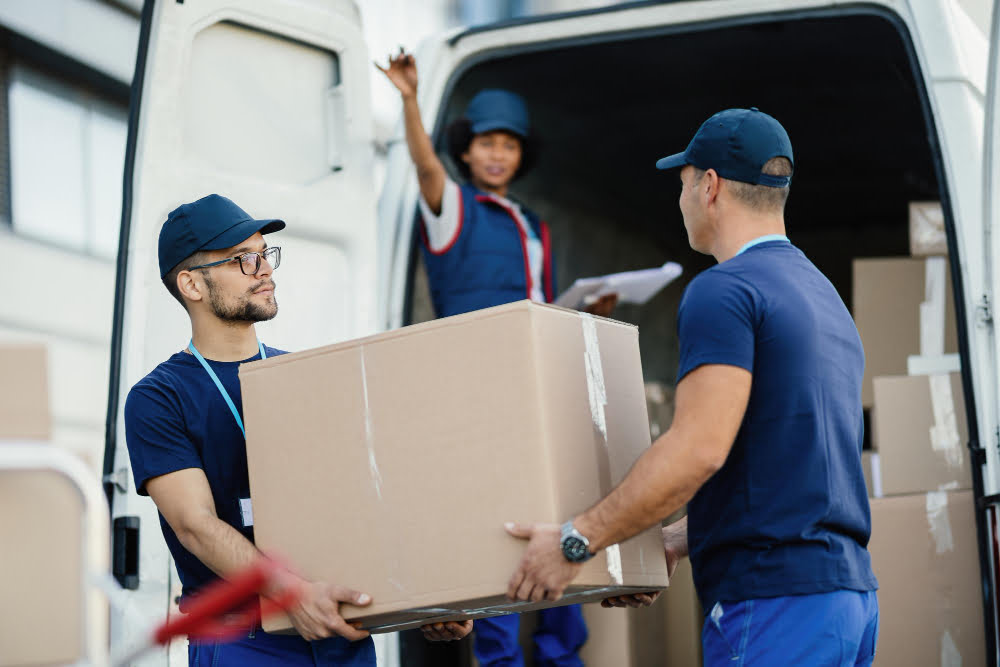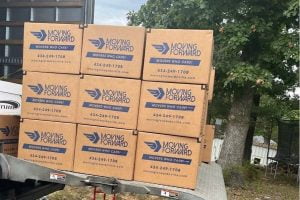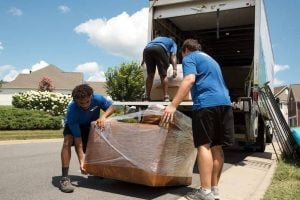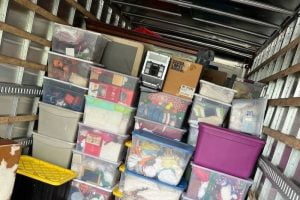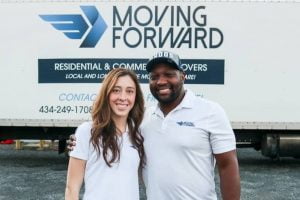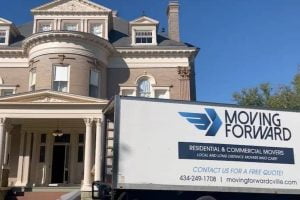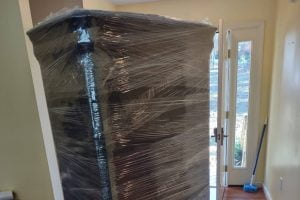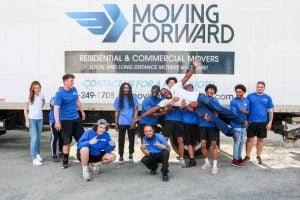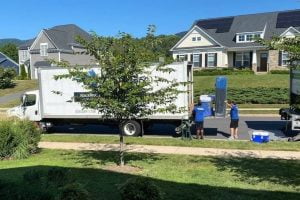Moving long distances can be a daunting task, but with proper planning and preparation, it can become a manageable and even exciting experience. Whether you're relocating for work, family, or a fresh start, a successful long-distance move requires careful organization and attention to detail.

The key to a smooth long-distance move is to start planning early, ideally 8 to 12 weeks before your intended move date. This allows ample time to sort through belongings, research moving companies, and address any logistical challenges that may arise. Breaking down the process into smaller, manageable tasks can help reduce stress and ensure nothing important is overlooked.
A well-executed long-distance move involves more than just packing boxes. It requires thoughtful consideration of transportation options, budgeting for expenses, and preparing for life in a new location. By following expert tips and creating a comprehensive checklist, individuals can navigate the complexities of relocating across state lines or even across the country with confidence.
Planning Your Long-Distance Move

Effective planning is crucial for a successful long-distance move. A well-organized approach covers key aspects like creating a comprehensive checklist, setting a realistic budget, and carefully timing the relocation process.
Creating a Moving Checklist
A detailed moving checklist serves as a roadmap for the entire relocation process. Start by listing all tasks, from packing to changing addresses. Prioritize items based on urgency and complexity. Include deadlines for each task to stay on track.
Consider creating separate lists for different aspects of the move:
- Packing and decluttering
- Utility transfers and cancellations
- Address changes and notifications
- Hiring movers or renting a truck
Update the checklist regularly as new tasks arise or get completed. This systematic approach helps prevent overlooking important details and reduces stress during the move.
Budget Planning
Accurate budget planning is essential for a smooth long-distance move. Begin by researching typical costs associated with relocating to your destination. Factor in expenses such as:
- Moving company fees or truck rental costs
- Packing supplies (boxes, tape, bubble wrap)
- Fuel and travel expenses
- Temporary accommodation if needed
- Storage fees for items not immediately moved
Create a spreadsheet to track estimated and actual costs. Include a contingency fund of 10-15% for unexpected expenses. Compare quotes from multiple moving companies to find the best value for your budget.
Timing Your Move
Choosing the right time for a long-distance move can significantly impact costs and convenience. Consider these factors:
- Peak moving seasons (summer months) often have higher rates
- School schedules if moving with children
- Weather conditions in both current and destination locations
- Work commitments and start dates at new jobs
Book movers or reserve a rental truck well in advance, especially during busy periods. Plan for potential delays due to weather or unforeseen circumstances. Create a timeline for packing, starting with least-used items several weeks before the move date.
Choosing the Right Moving Service

Selecting an appropriate moving service is crucial for a successful long-distance relocation. The choice depends on factors like budget, timeline, and personal preferences.
Hiring Professional Movers
Professional movers offer comprehensive services for long-distance moves. They handle packing, loading, transportation, and unloading. Many companies provide additional services like furniture disassembly and reassembly.
When selecting a moving company, check their licenses and insurance. Ask for detailed quotes from multiple providers to compare prices and services. Read customer reviews and ratings to gauge reliability and quality.
Professional movers often offer tracking services, allowing you to monitor your belongings during transit. This can provide peace of mind during a long-distance move.
Cost Comparison
Long-distance moving costs vary widely based on distance, volume of belongings, and services required. Professional movers typically charge by weight and distance for long-distance moves.
Moving often have more straightforward pricing, based on size and distance. This can be more economical for smaller moves or those willing to handle packing themselves.
Consider hidden costs like packing materials, insurance, and potential storage fees. Some companies offer binding estimates, which guarantee the quoted price won't increase.
Creating a detailed inventory of your belongings can help obtain accurate quotes. Remember to factor in travel costs for yourself and family members when budgeting for a long-distance move.
Packing and Preparing Your Belongings

Proper packing is crucial for a successful long-distance move. Careful preparation protects your belongings and streamlines the entire process.
Essential Packing Tips
Start packing at least 8 weeks before your move date. Gather high-quality packing materials like sturdy boxes, bubble wrap, packing tape, and permanent markers. Label each box clearly with its contents and destination room.
Create an inventory list as you pack. This helps track items and assists with insurance claims if needed. Pack an essentials box with items you'll need immediately upon arrival.
Don't pack perishable foods, hazardous materials, or important documents. Keep these with you during the move.
Use small boxes for heavy items and larger ones for lighter belongings. Fill empty spaces in boxes with packing paper to prevent shifting.
Furniture and Large Items
Disassemble furniture when possible to save space and prevent damage. Keep screws and small parts in labeled plastic bags attached to the furniture pieces.
Wrap furniture in moving blankets or furniture pads to protect against scratches and dents. Secure drawers and doors with tape.
For appliances, consult user manuals for proper moving instructions. Clean and dry appliances thoroughly before packing. Secure moving parts and remove loose items.
Consider professional crating for valuable or fragile large items like artwork or antiques.
Dealing With Fragile Items
Wrap each fragile item individually in bubble wrap or packing paper. Use dish pack boxes for kitchenware, with additional cushioning between items.
Pack glasses and stemware vertically, not stacked. Fill hollow items like vases with packing paper for added protection.
Use specialty boxes for electronics. If possible, pack items in their original boxes. Remove batteries from devices to prevent leakage.
Label fragile boxes clearly on all sides. Pack these boxes last and unload them first to minimize handling.
For extremely delicate items, consider double-boxing with cushioning between the boxes.
Special Considerations
Long-distance moves involve unique challenges that require careful planning and preparation. Certain situations demand extra attention to ensure a smooth transition.
Moving With Family
Relocating with family members adds complexity to a long-distance move. Communicate openly with children about the upcoming changes. Involve them in the process by letting them pack special items or choose decorations for their new rooms.
Research schools and activities in the new area to help kids feel excited about the move. Plan visits to the new location if possible to familiarize everyone with their future home.
For teens, consider their social ties and discuss ways to maintain connections with friends. Help them explore opportunities in the new community that align with their interests.
Coordinate with employers for job transfers or remote work arrangements if applicable. Consider the impact on elderly family members and make necessary accommodations.
Relocating Larger Houses
Moving a larger home requires meticulous organization. Create a detailed inventory of belongings room by room. Consider downsizing by selling, donating, or discarding items not needed in the new location.
Hire professional movers experienced in handling large-scale relocations. They can provide specialized packing materials and equipment for valuable or oversized items.
Plan the layout of the new home in advance. Measure furniture and doorways to ensure a proper fit. Label boxes clearly with room designations and contents for efficient unpacking.
For valuable collections or antiques, consider specialized moving services or additional insurance coverage. Photograph high-value items before packing as documentation.
Handling Pets and Plants
Moving with pets requires careful planning. Obtain health certificates and ensure vaccinations are up-to-date. Research pet regulations in the new location, including breed restrictions or quarantine requirements.
For long car trips, plan frequent stops for exercise and bathroom breaks. Pack a travel kit with food, water, medications, and comfort items.
When flying, choose pet-friendly airlines and book direct flights when possible. Familiarize pets with travel carriers well in advance of the move.
For plants, check regulations regarding transportation across state lines. Consider gifting large plants to friends or donating to local organizations if moving is impractical.
For plants you decide to move, repot them in plastic to reduce weight. Water sparingly before the move to prevent soil from becoming too heavy or messy.
MOVING FORWARD - YOUR WAY TO MOVE FORWARD
At Moving Forward, we offer great moving services at prices that won't break the bank. Our team is all about making your move easy and stress-free. We, as commercial moving company in Charlottesville take care of your stuff like it's our own and handle everything with care. Whether you're moving nearby or far away, our rates are affordable for everyone. Choose Moving Forward for a smooth and budget-friendly move to your new place. We're here to make your moving experience a breeze!
For quotes, contact us to get better deals.


